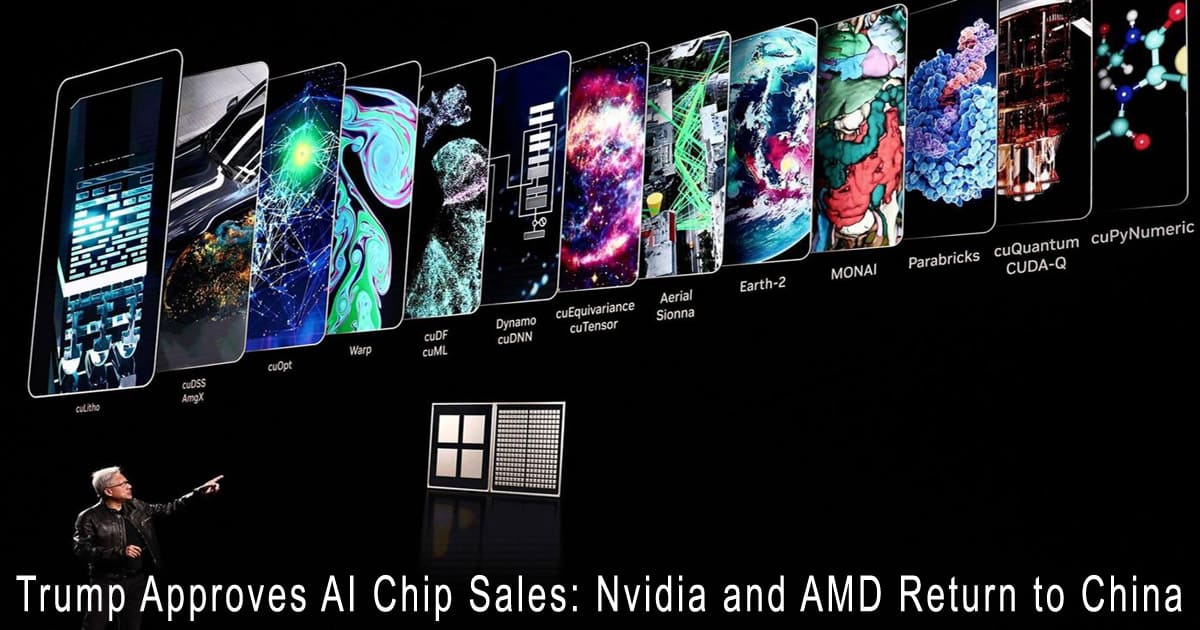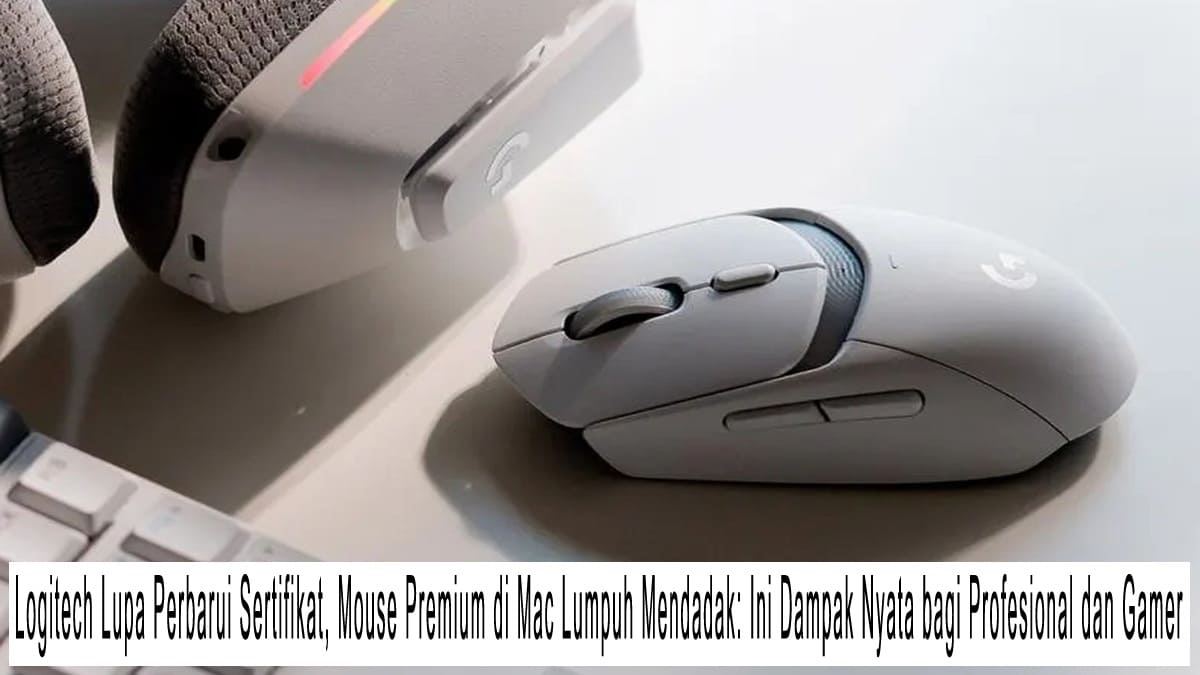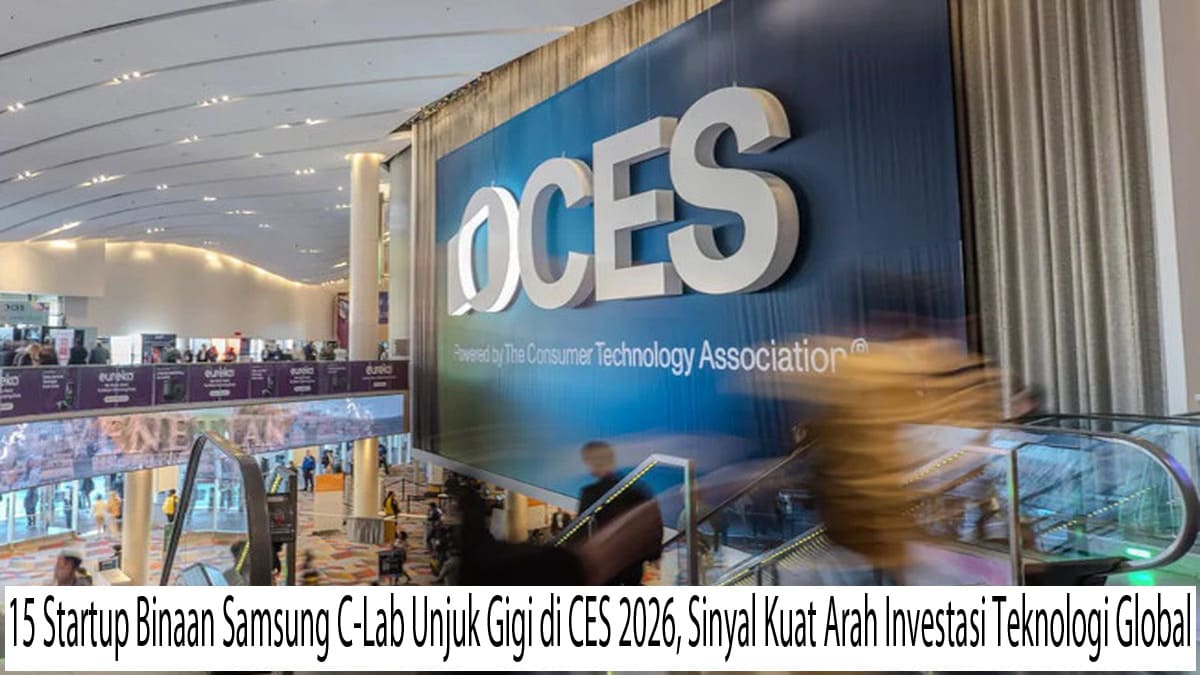Trump Approves AI Chip Sales – Following more than two years of strict U.S. export regulations, Nvidia and AMD were eventually granted permission to start selling AI chips to China again. Now in his second administration, President Donald Trump approved the political move. Following that, the Commerce Department announced it would ease export licensing rules. https://dontkilladream.com
The worldwide tech scene was rocked by this move right away. But beyond the headlines, the story gets much deeper—especially for those closely watching semiconductors, global trade, or AI development.
Trump Approves AI Chip Sales: Nvidia and AMD Return to China
What’s Actually Allowed?
The Commerce Department granted export licenses for Nvidia’s H20 GPU and AMD’s MI308. These chips are trimmed-down versions of the flagship H100 and MI300X. The U.S. had previously banned them over concerns they could support military AI projects in China.
Nvidia’s H20 features reduced memory bandwidth and slower interconnect speeds to meet export limits. AMD’s MI308 offers slightly less compute power than the MI300X but still works well for large-scale AI inference.
“These licenses aren’t blanket approvals. We’re reviewing each request individually,” said a Commerce Department official.
Why Is the U.S. Easing Up?
This policy shift is part of a broader trade negotiation between Washington and Beijing. The talks focus especially on rare earth elements that are essential for electric vehicles and electronics. China recently hinted it might restrict exports of materials like neodymium and dysprosium.
“This has to do with trade leverage, not just AI chips,” Dr. Elaine Zhang from MIT’s Tech Policy Lab. “The U.S. needs rare earths. China needs high-performance chips for AI startups like Baidu, Alibaba, and iFlytek.”
How Are Nvidia and AMD Reacting?
The company is prepared to meet China’s demand, according to Nvidia CEO Jensen Huang, who praised the action. “We’re committed to compliance. But China remains a vital market for global AI progress,” he wrote on Nvidia’s blog.
Meanwhile, AMD confirmed it has MI308 inventory ready for shipment. It plans to supply cloud providers and manufacturing partners in China.
Sources say both companies now follow a “dual roadmap.” They design high-end chips for Western markets and optimized versions for China.
What About Competitors and the AI Ecosystem?
Nvidia and AMD’s return could slow down China’s domestic chipmakers. Companies like Huawei (Ascend) and Biren (BR100) had gained ground during the U.S. export ban.
“Chinese chip firms ramped up production in the last 18 months,” said Daniel Wong, a semiconductor analyst at Omdia. “But their software tools still lag far behind Nvidia’s CUDA or AMD’s ROCm.”
Many Chinese AI startups relied on old chips or turned to the gray market. With this policy change, they can return to modern platforms. That shift could speed up AI adoption in industries like defense, fintech, and manufacturing.
Opportunities and Risks for Investors
Wall Street reacted fast. AMD’s stock increased 3.7% in a single day, while Nvidia’s surged 4.3%. Still, analysts warn that these gains might not last.
“Any flare-up in U.S.–China tensions could reverse this decision,” said John Merrick, a portfolio manager at Franklin Templeton. “Investors should expect volatility.”
At the same time, investors betting on China’s AI market see new opportunities. Cloud providers like Tencent and Inspur, along with chip consumers like Horizon Robotics, now gain access to better hardware.
Final Thoughts: Small Shift, Big Impact
While this isn’t a total end to the tech embargo, Trump’s decision signals a real policy shift. It shows the U.S. may choose flexibility over rigid controls when strategic interests align.
For tech firms, policymakers, and investors, this is a moment to rethink export strategies, supply chains, and international partnerships.
Nvidia and AMD may be back in the Chinese market, but the global battle over AI chips is still heating up.



